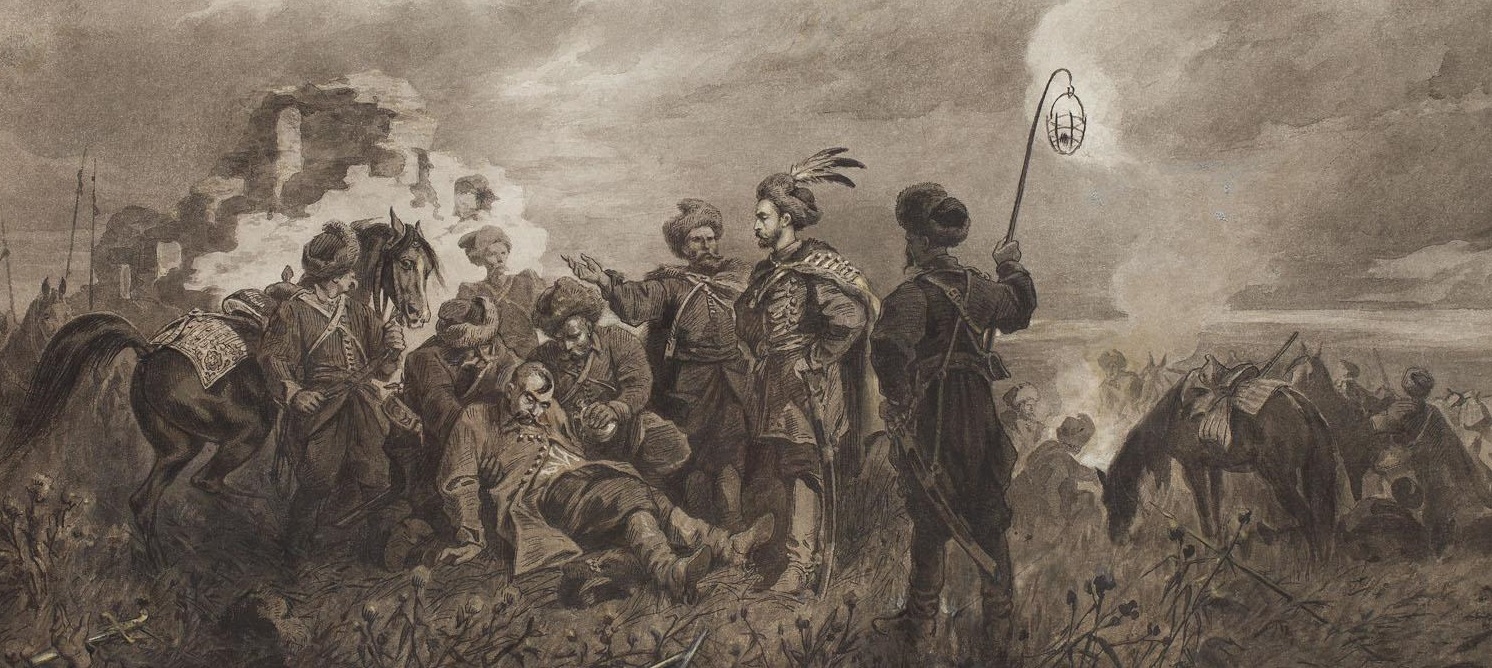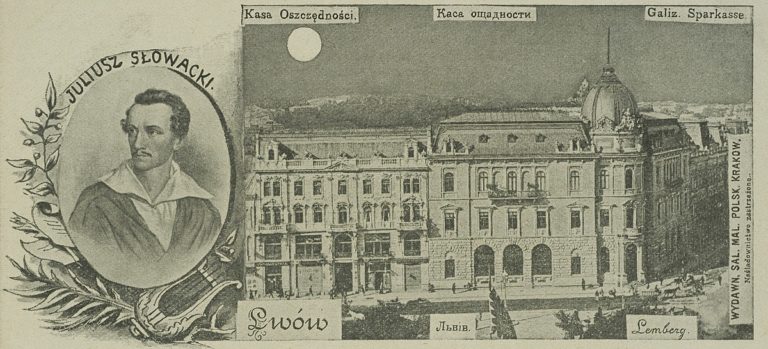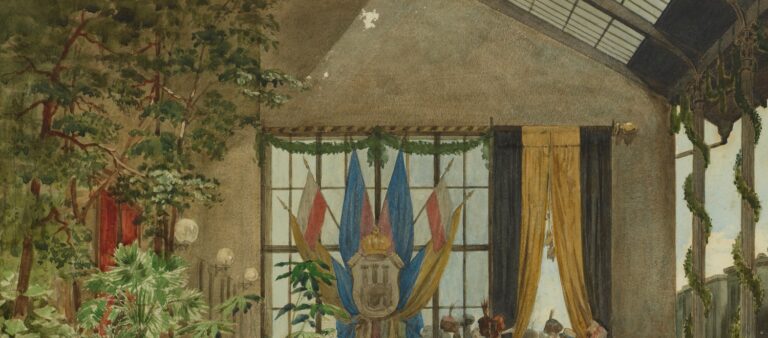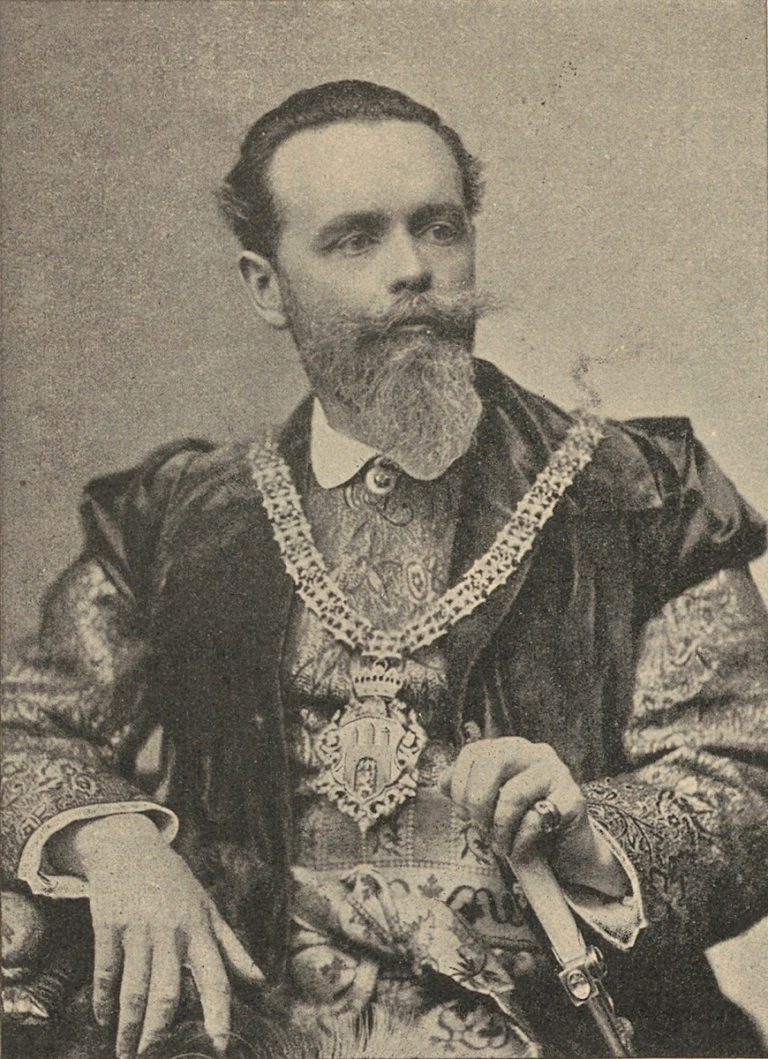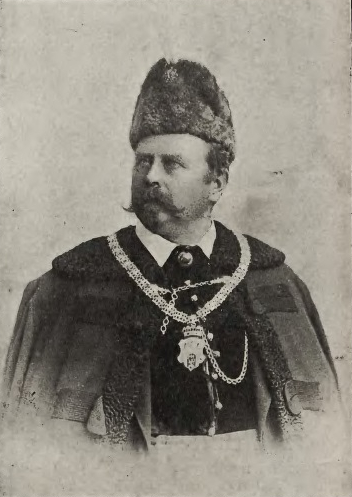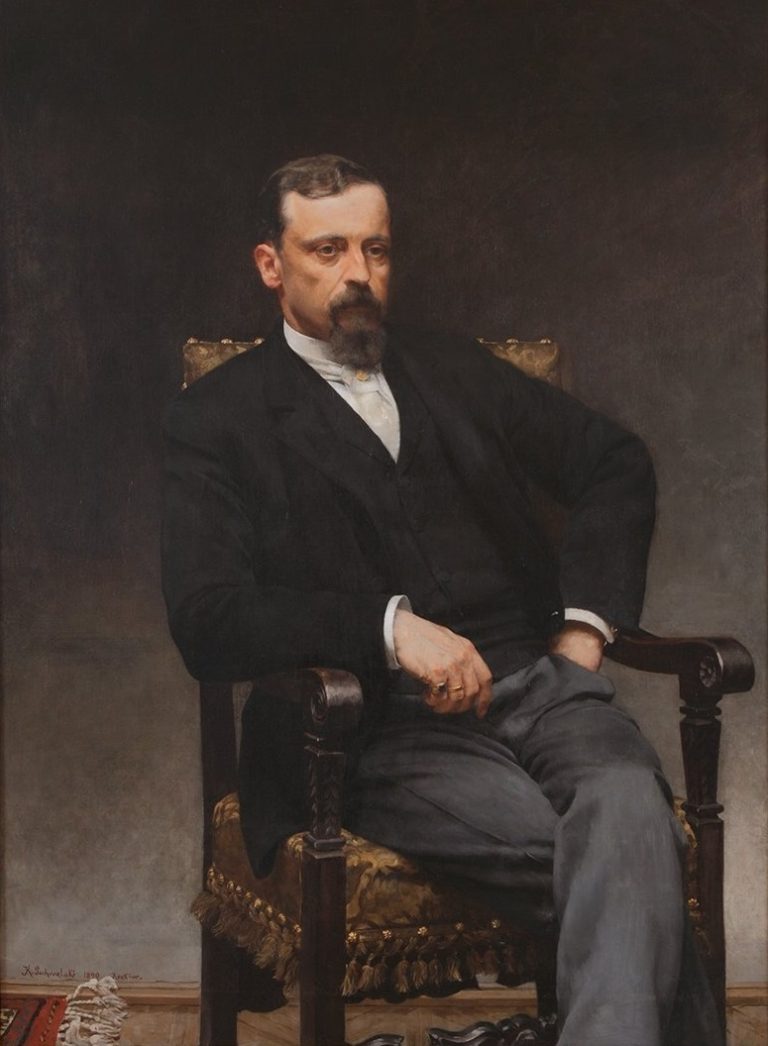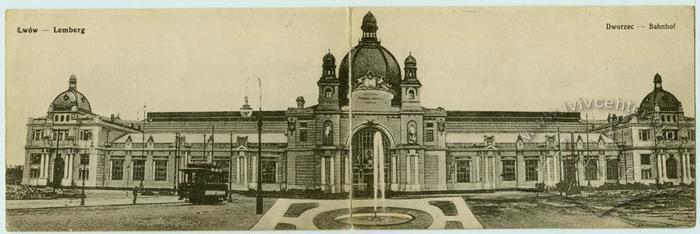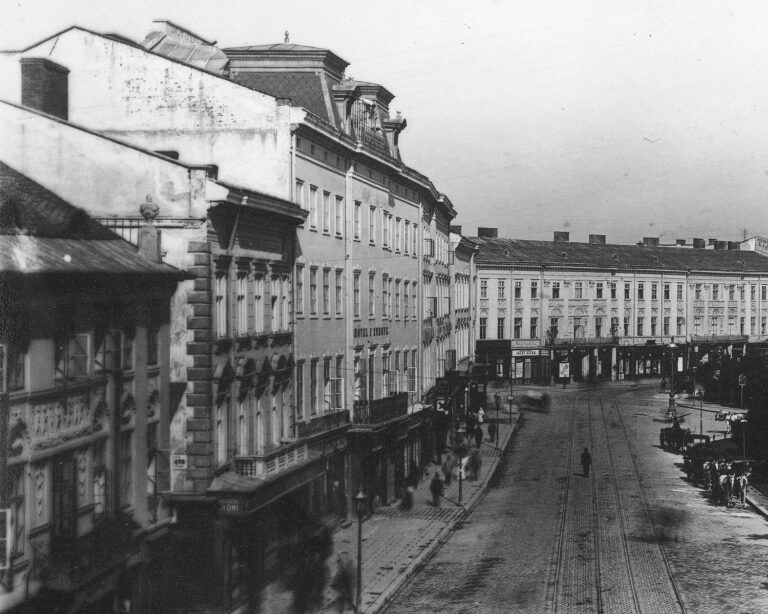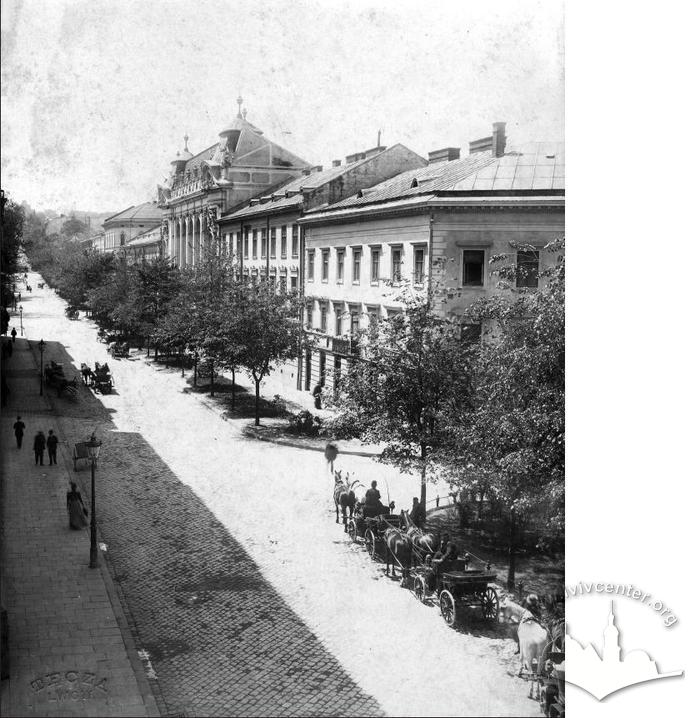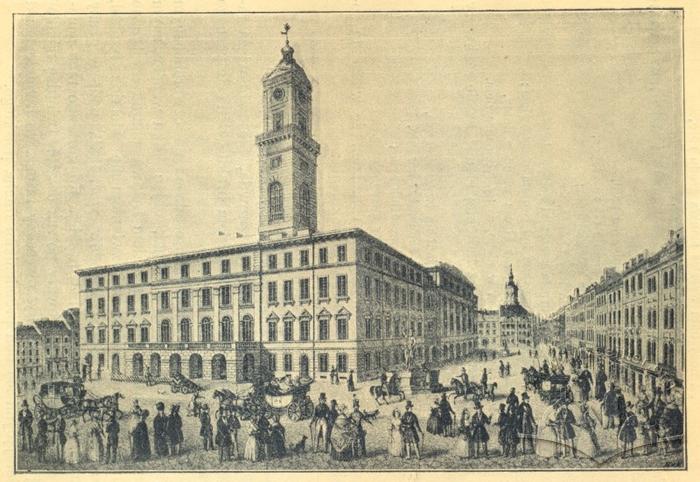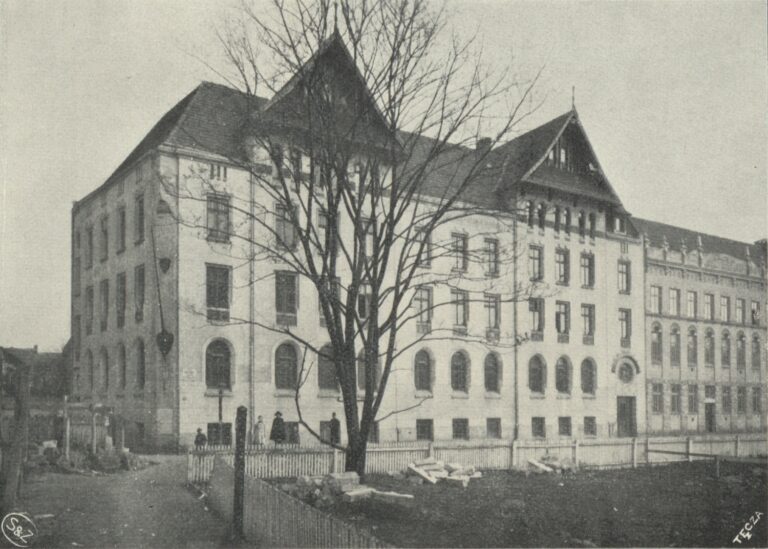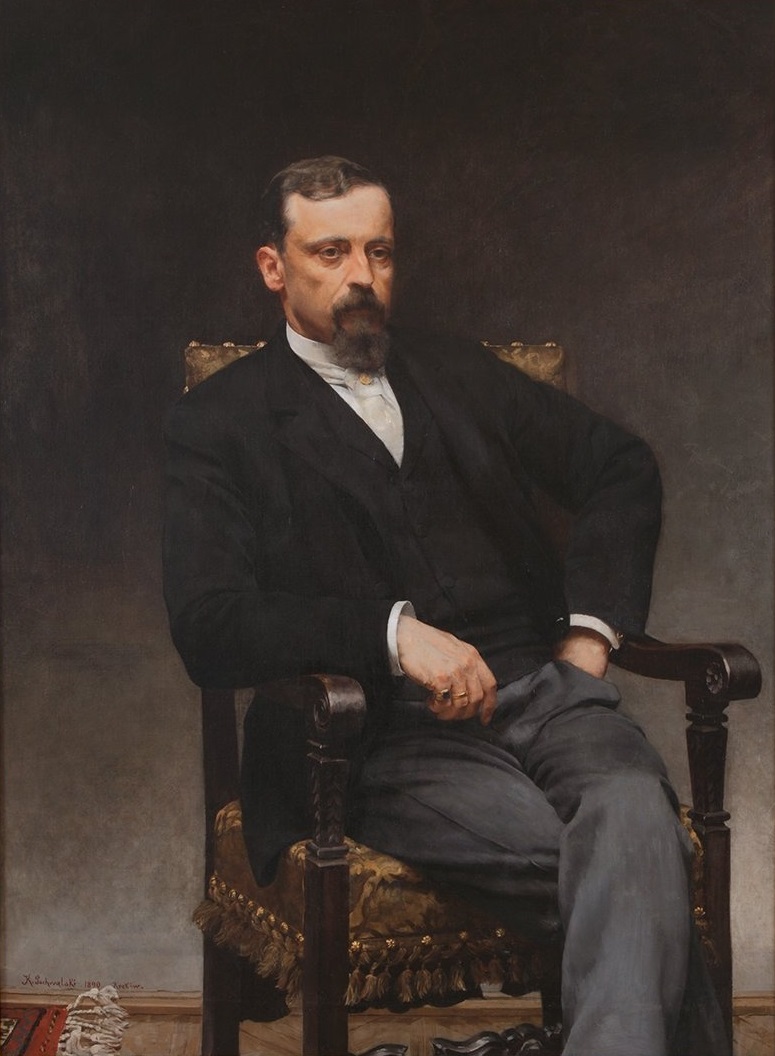
Henryk Sienkiewicz. Portreted by Kazimierz Pochwalski at the Henryk Sienkiewicz's palace in Oblęgorek
At the time of his visit, Henryk Sienkiewicz was already one of the most prominent (and most highly paid) Polish writers. Among the public, he was popular especially due to his his patriotic trilogy With Fire and Sword (1883–1884), Flood (1884–1886) and Pan Wołodyjowski (1887–1888), where he described the fight against the Bohdan Khmelnytskyi's uprising, Swedish intervention into the Polish-Lithuanian Commonwealth, and wars with the Turks.
The writer's visit to Lviv in 1900 was dedicated simultaneously to two events. A new novel The Crusaders was being prepared for print – it was about the fight with the Teutonic Order; also, in 1900 the 25th anniversary of Henryk Sienkiewicz's writing activity was celebrated.
The visit of one of the most important Polish writers, the author of patriotic novels to Lviv constituted a testimony of the "Polish nature of the city" and was a strong mobilization factor for the Polish community. That is confirmed by the participation of a great number of students and pupils as well as representatives of the city authorities, let alone writers and journalists, in the ceremonial meetings. Mass events held not only in Polish institutions, like the National Casino, were to show the belonging of the city's public space to the "Polish environment". Finally, the visit of the then-main Polish writer to the city had to prove that Lviv was one of the main Polish cities in the intellectual sense (via participation of a great number of artists, writers, journalists in the ceremonial events), in the demographic sense (via university and school students), administrative one (city authorities) and cultural (via event holding in the theater, casino).
Event description with localization
Henryk Sienkiewicz came to Lviv by train from Krakow on April 29, in the evening. He was met in the Lviv railway terminal waiting hall, decorated for the occasion with flowers, by representatives of intelligentsia (journalists, writers, artists), and city authorities, including the President of the City Godzimir Małachowski and vice-president Michał Michalski. The students of the University and the Polytechnic Institute waited for the writer on the square before the building.
Besides the ovations, the Lviv public met the author of With Fire and Sword with an improvised "fire corridor", arranged by some two thousand schoolchildren with torches. They stood in a row along Zaliznychna Street (modern Chernivetska Street) from the railway station up to Horodotska Str.
Having stayed overnight in the Hotel d'Europe which was also decorated with flowers, Sienkiewicz delivered a speech in the Lviv City Hall on the next day. He read an excerpt from his novel The Crusaders, which was not yet published at the time. The excerpt contained a description of the Battle of Grunwald. This was especially symbolic due to the fact that in 1410, 52 Teutonic battle flags acquired as a trophy, were brought to Lviv, and following the old winners' tradition were thrown into mud on the Rynok Square.
During the writer's visit to Lviv some other, less formal, events took place. On May 4, a meeting with journalists was organized at the National Casino (Kasyno Narodowe) at Mickiewicza Street, 6 (today vul. Lystopadovoho Chynu). On May 5, a meeting with the Polish youth was held in the Academic Reading Hall (Czytelnia Akademicka).

Medal of Henryk Sienkiewicz as an honorary citizen of Lviv
Event interpretation by different editions
The Polish press (Kurjer Lwowski, the state Gazeta Lwowska) described the meeting mainly as an outstanding event for the Polish community, in particular, for youth that expressed its adoration and respect with the torch ceremony and numerous ovations "Let live". Henryk Sienkiewicz himself also showed respect for the Lviv public, appearing before it bareheaded.
From the point of view expressed by Ukrainian press (the newspaper Dilo), this event did not have anything to do with the non-Polish part of Lvivites, being a Polish patriotic campaign, and an elite one in addition. In the opinion of the editorial board of Dilo, the aim of the writer's visit was to provide financial support to Polish institutions. For example, his lectures were to help financially the Pension Fund of the Society of Polish Journalists (Towarzystwo polskich dziennikarzy) and The People's School Society (TSL, Towarzystwo Szkoly Ludowej). Quite indicative (since it shows the level of relations between the Ukrainian and Polish journalist environments) is the remark of the newspaper Dilo saying that the Poles of Lviv are used to organizing "breakfasts, dinners, suppers…" for their guests, without particularly caring for the meaningful part of the visits.
